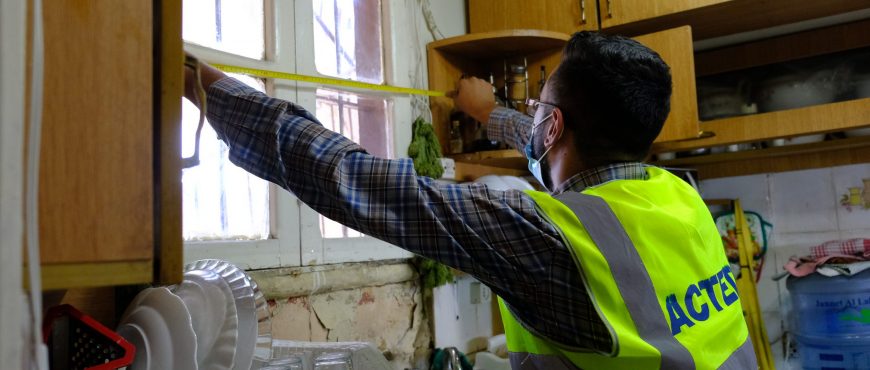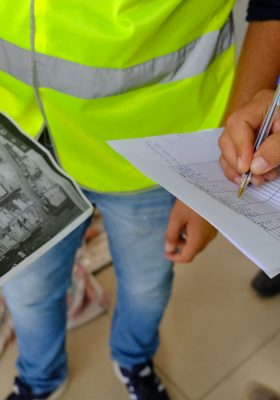Six months after the explosions ripped through the port of Beirut and surrounding areas, the city and its diverse communities are having a hard time getting back on their feet.
Piles of debris and twisted metal, shattered concrete and exposed shelters can still be seen throughout the many neighborhoods affected by the explosions.
ACTED, alongside Lebanese civil society actors, has been providing emergency support to the most vulnerable communities in Beirut, helping families to rebuild their homes and businesses.

How has ACTED responded to the explosion?
ACTED Lebanon has been on the forefront of the emergency assistance since the very first day after the blast with the following activities:





A succession of crises
The Beirut port explosions is a humanitarian tragedy that has been compounded by a succession of crises that the population has been dealing with, without any respite.
Over the past six months, the Lebanese people and other communities of refugees and migrant workers have faced the consequences of the political crisis, unprecedented price inflation, market shortages, spiking unemployment, in addition to the Covid-19 crisis.
In an attempt to control the virus, the government introduced national mobilization measures, which inevitably impacted everyday social and economic life. These crises have pushed thousands into unemployment, leaving many with little or no means to avoid the extreme hardship. It is estimated that 45% of the general population is now living below the poverty line.
Investing in Tomorrow: Our work with Lebanese Organisations
Central to ACTED’s approach in the Beirut response has been our work in longer-term resilience building and recovery. As well as working alongside and coordinating with Lebanese organisations, ACTED has also integrated partner staff into trainings on: financial management, external relations and technical know-how to improve their operations. Such capacity building is essential for ensuring civil society is left in a better position in future emergency response.
You can read more about our partner Beirut Urban Labs by clicking on the following link: https://www.beiruturbanlab.com/
ACTED’s response has targeted the most vulnerable communities located in the areas of:
- Karantina
- Gemmayze
- Bourj Hammoud
- Mar Mikhael
- Jeitawi
- Rmeil
For a full overview of all of ACTEDs achievements in responding to the Beirut explosion, please download our factsheet.
Download